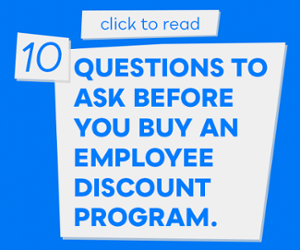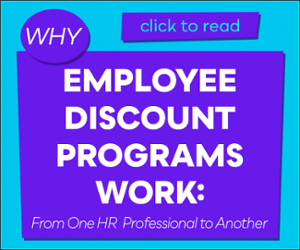Organizational strategy is an essential element of properly running your business. Without an organizational strategy, it can be hard to achieve your long-term business goals in a timely and focused fashion. Most successful businesses will create an organizational strategy that takes into account the company’s mission, goals, and general operating practices.
If you are new to running a business or simply want to understand how to create an effective organizational strategy, we’re here to help you out. This article will discuss exactly what an organizational strategy is in addition to giving you the benefits of creating one for your business and some pointers on how to maximize your strategy for the most benefits.
What Is An Organizational Strategy?
In general, an organizational strategy will list all of the actions and processes that you intend to act on in order to achieve long-term business goals. You can have more than one business goal listed in your organizational strategy, and the goals can have different procedures outlined that help you obtain them.
Your business’s mission, which is the purpose of your business’s operations, will help to drive your long-term goals. Every action or process that you include in your strategy should work toward fulfilling these goals while taking into account your business’s overall mission.
How do I Choose the Right Organizational Strategy?
It is essential when creating your organizational strategy that you take into account your company’s individual and team capabilities, your business’s resources, how long each process or task will take to achieve, your business’s financial situation, and your overall control and project planning abilities.
If you fail to have a realistic idea of these factors in your organizational strategy, it will be difficult to obtain your business goals in a cost-effective and generally stress-free manner.
When creating your organizational strategy, you should consider the three main levels of your business and their specific roles in your overall plan. It can help you to imagine these levels as building blocks, with the functional strategy being the most immediately workable and corporate level strategy being the most long-term and fluid.
Corporate Level Strategy
Your corporate level strategy refers to the main, overarching mission of your business. This will be the main goal that you want your business to move towards, such as diversification, profit, turnaround, or liquidation.
In general, this part of the strategy will be fairly broad and depend on the other levels of your business to be properly completed, making it slightly more abstract and complex.
Business Level Strategy
More focused than corporate level strategy, business level strategy generally includes goals that are more specific and based on direct actions that can be taken by you, your team, or your employees. This strategy level may include things such as increasing or decreasing budgets, performing research on new markets, and expanding your business’s exposure.
It can help to ensure that every abstract goal that you have listed on the corporate level is associated with a more specific business level strategy goal.
Functional Level Strategy
Your functional level strategies will include more specific actions and processes that can help you obtain your business level strategy goals. They will be things that you can assign to your employees or team members and are generally very detail-oriented. Your functional level goals will help you reach your business level goals, which will, in turn, assist you in reaching your corporate level strategy goals.
For example, if you have set a corporate level goal for your company to profit more, a business level goal may be to do market research in a new area. In this case, your functional level goal will be to assign teams specific areas to research and products that may be popular in those areas.
The Benefits of an Organizational Strategy
Organizational strategies may seem a little overwhelming to create, but it is essential to craft a well-thought-out plan for your business as it can provide you with many benefits that allow your business to grow and thrive.
Establish Direction
A major part of creating an organizational strategy is thinking about your long-term business goals and the multifaceted steps needed to obtain them. This can help you prioritize your actions and give your business a general sense of direction because the actions that you need to take have already been thought about and plotted out.
This sense of direction can also help to focus employees and team members because the functional level of your strategy plan directly applies to them and help to define which actions need to be taken.
Ensure Collaboration
An effective organizational strategy is highly dependent on all members of your business doing their part and meeting the specific outlined goals. When you designate tasks or actions to your team, this can help to unify your employees and ensure everyone is working towards achieving the same goals.
It can also create alignment amongst all of your resources (both employees and outside resources) and make sure that every part of your business is on the same page. This can maximize your resources and improve your overall success as a business.
Simplification of Decisions
Because you will have already set specific goals and created plans as part of your organizational strategy, there won’t be any need for long, drawn-out decision-making processes about the best way to achieve your business goals. The activities and choices have already been outlined, simplifying the process and streamlining your focus.
Easy Adaptation
Once you have your business goals set as part of your organizational strategy, it will not be as difficult to adapt to problems that arise for your business along the way. Your organizational plan is meant to help guide you and while you should stick to it, you can always move around parts of the strategy and add or take away goals as needed.
Effective Communication
Having an organizational strategy where your plan is clearly laid out and your goals are visible to team members and other employees can help effectively communicate your plans. Without an organizational strategy, team members may be confused about the actions that they need to take and where the business is going, so by providing your business’s overall direction as part of your organizational strategy you can help your employees better complete their individual goals.
Developing Your Ideal Organizational Strategy
As you start to evaluate your business goals and develop your personal organizational strategy, there are some factors that you need to consider in order to maximize your benefits.
Understand Your Business’s Current Standing
In order to start figuring out your long-term business goals, you will need to evaluate where your business is currently and take this into consideration. It is important to see your business as customers and employees see it, as this will give you the most accurate information for your strategy.
Make sure to consider all of the following when trying to understand your business’s current standing.
- Your customers
- The overall marketplace for your business
- Your competitors
- Your strengths
- Your weaknesses
Evaluate What Is Important
After you have a good sense of where your business is currently, you should take some time to consider what is most important for your business and where you want your business to go over time. As you analyze what is most important to you, you can also decide on your priorities for your business and determine which issues will be the most helpful in obtaining your goals.
Once you have a good idea of your most important goals, you will be able to define the specific steps you need to reach the goals by integrating your important issues into the three-leveled structure discussed above.
Make sure you know exactly what you need to achieve these important goals and where to delegate the responsibility for each actionable task. Ensure there is accountability along each step of the way and that your goals are reasonable, action-oriented, take into consideration time constraints, and are easily measurable.
Consider Your Corporate Culture
Your corporate culture will also be essential to understand when creating your organizational strategy. The overall culture of your business will influence what you consider most important and can contribute to decisions you make during both the goal-setting and hiring process for your business.
Always remember to consider your corporate culture and the image you want to portray to employees and customers to ensure your strategic goals are in alignment and helping you to continually improve your business.
Review and Adapt
Constantly reviewing your organizational strategy and adapting it to overcome speed bumps or to accommodate new information is essential in making the most of your strategy. Regular reviews will help you to see what’s working and what needs to be changed. Reviews should also include your team and those who may be responsible for other management decisions, as this can help improve communication about your business’s goals and each step of the process in obtaining these goals.
Organizing Your Strategy for Success
Developing an organizational strategy for your business is an essential step in focusing your operations and ensuring that your business meets all of the goals you envision for it. When creating your organizational strategy, be sure to include more abstract corporate level goals, mid-tier business level goals, and specific functional level goals, as this will allow you to create an actionable plan that eventually comes to fruition.
And, lastly, don’t forget: always review and adapt your strategy so you can be certain that you are organizing your business for success, both now and in the future.





